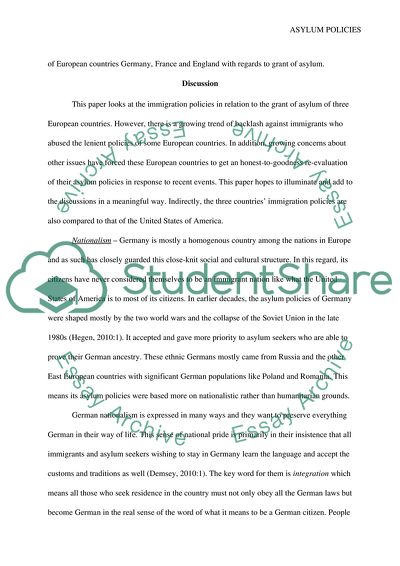Cite this document
(Asylum Policies Essay Example | Topics and Well Written Essays - 2000 words, n.d.)
Asylum Policies Essay Example | Topics and Well Written Essays - 2000 words. https://studentshare.org/law/1742950-what-explains-differences-in-migration-policies-of-countries-answer-with-reference-to-asylum-policy-discuss-with-reference-to-at-least-two-oecd-countries-word-limit-1500-words
Asylum Policies Essay Example | Topics and Well Written Essays - 2000 words. https://studentshare.org/law/1742950-what-explains-differences-in-migration-policies-of-countries-answer-with-reference-to-asylum-policy-discuss-with-reference-to-at-least-two-oecd-countries-word-limit-1500-words
(Asylum Policies Essay Example | Topics and Well Written Essays - 2000 Words)
Asylum Policies Essay Example | Topics and Well Written Essays - 2000 Words. https://studentshare.org/law/1742950-what-explains-differences-in-migration-policies-of-countries-answer-with-reference-to-asylum-policy-discuss-with-reference-to-at-least-two-oecd-countries-word-limit-1500-words.
Asylum Policies Essay Example | Topics and Well Written Essays - 2000 Words. https://studentshare.org/law/1742950-what-explains-differences-in-migration-policies-of-countries-answer-with-reference-to-asylum-policy-discuss-with-reference-to-at-least-two-oecd-countries-word-limit-1500-words.
“Asylum Policies Essay Example | Topics and Well Written Essays - 2000 Words”. https://studentshare.org/law/1742950-what-explains-differences-in-migration-policies-of-countries-answer-with-reference-to-asylum-policy-discuss-with-reference-to-at-least-two-oecd-countries-word-limit-1500-words.


